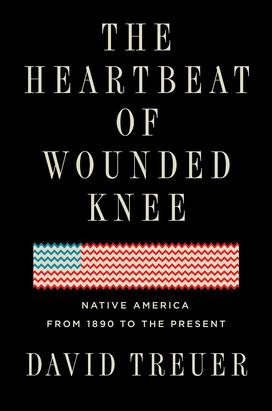David Treuer ’92 On What Really Came After Wounded Knee

Treuer traces Native American history from first contact with European settlers through land seizures, the relocation of reservations, and the migration to urban areas. He also explores the emergence of a Native American identity and formation of intertribal social networks. Most of all, Treuer humanizes and personalizes the experiences of Native Americans through his own stories about the reservation where he grew up.

Opening lines: This book tells the story of what Indians in the United States have been up to in the 128 years that have elapsed since the 1890 massacre of at least 150 Lakota Sioux at Wounded Knee Creek in South Dakota: what we’ve done, what’s happened to us, what our lives have been like. It is adamantly, unashamedly, about Indian life rather than Indian death. That we even have lived—that Indians have been living in, have been shaped by, and in turn have shaped the modern world—is news to most people. The usual story told about us—or rather, about “the Indian”—is one of diminution and death, beginning in untrammeled freedom and communion with the earth and ending on reservations, which are seen as nothing more than basins of perpetual suffering. Wounded Knee has come to stand in for much of that history. In the American imagination and, as a result, in the written record, Wounded Knee almost overnight assumed a significance far beyond the sheer number of lives lost. It became a touchstone of Indian suffering, a benchmark of American brutality, and a symbol of the end of Indian life, the end of the frontier, and the beginning of modern America. Wounded Knee, in other words, stands for an end, and a beginning.
What were the actual circumstances of this event that has taken on so much symbolic weight?
Reviews: “In a marvel of research and storytelling, an Ojibwe writer traces the dawning of a new resistance movement born of deep pride and a reverence for tradition. Treuer’s chronicle of rebellion and resilience is a manifesto and rallying cry.” —O, The Oprah Magazine.











No responses yet